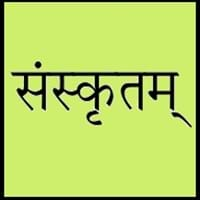Sanskrit vs Portuguese
- Sanskrit language has highest number of vocabularies than any other language.
- Sanskrit Language has proved to help in speech therapy, also it increases concentration and helps to learn maths and science better.
- Portuguese language has absorbed many words from French, Italian, Arabic and also from indigenous South American and African languages.
- The first written document in Portuguese language was found in the 12th century.
Sanskrit and Portuguese Language History
Comparison of Sanskrit vs Portuguese language history gives us differences between origin of Sanskrit and Portuguese language. History of Sanskrit language states that this language originated in 2000 B.C. whereas history of Portuguese language states that this language originated in 3rd Century. Family of the language also forms a part of history of that language. More on language families of these languages can be found out on Sanskrit and Portuguese Language History.
Sanskrit and Portuguese Greetings
People around the world use different languages to interact with each other. Even if we cannot communicate fluently in any language, it will always be beneficial to know about some of the common greetings or phrases from that language. This is where Sanskrit and Portuguese greetings helps you to understand basic phrases in Sanskrit and Portuguese language. Sanskrit word for "Hello" is नमस्कारः (namaskāraḥ) or Portuguese word for "Thank You" is obrigado. Find more of such common Sanskrit Greetings and Portuguese Greetings. These greetings will help you to be more confident when conversing with natives that speak these languages.
Sanskrit vs Portuguese Difficulty
The Sanskrit vs Portuguese difficulty level basically depends on the number of Sanskrit Alphabets and Portuguese Alphabets. Also the number of vowels and consonants in the language plays an important role in deciding the difficulty level of that language. The important points to be considered when we compare Sanskrit and Portuguese are the origin, speaking countries, language family, different greetings, speaking population of these languages. Want to know in Sanskrit and Portuguese, which language is harder to learn? Time required to learn Sanskrit is 20 weeks while to learn Portuguese time required is 24 weeks.





